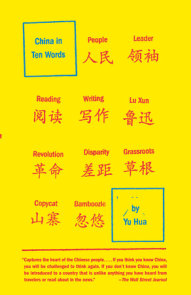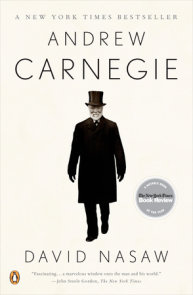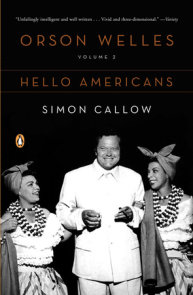READERS GUIDE
Questions and Topics for Discussion
INTRODUCTION
Set against the backdrop of the turbulent thirteenth century—a time of chivalry and crusades, poetry, knights, and monarchs—comes the story of the four beautiful daughters of the count of Provence, whose brilliant marriages made them the queens of France, England, Germany, and Sicily. From a cultured childhood in Provence, each sister was propelled into a world marked by shifting alliances, intrigue, and subterfuge. Marguerite, the eldest, whose resolution and spirit would be tested by the cold splendor of the Palais du Roi in Paris; Eleanor, whose soaring political aspirations would provoke her kingdom to civil war; Sanchia, the neglected wife of the richest man in England who bought himself the crown of Germany; and Beatrice, whose desire for sovereignty was so acute that she risked her life to earn her place at the royal table.
A compulsively readable narrative, Four Queens shatters the myth that women were helpless pawns in a society that celebrated physical prowess and masculine intellect. Four Queens is a riveting historical saga for fans of Alison Weir and Antonia Fraser.
ABOUT NANCY GOLDSTONE
Nancy Goldstone is the coauthor (with her husband Lawrence Goldstone) of five books, including Out of the Flames, The Friar and the Cipher, and Warmly Inscribed. She lives in Westport, Connecticut.
A CONVERSATION WITH NANCY GOLDSTONE
Q. Where did you get the idea for this book?
A. I can pinpoint the exact moment when I was introduced to my queens. I was lying in bed one night five years ago reading the chronicle of Matthew Paris. Matthew Paris was a thirteenth-century English Benedictine monk well acquainted with aristocratic circles who recorded his observations of court life, politics, and current events in a journal that spanned several decades. Matthew Paris had a keen eye for hypocrisy and wrote with wit and insight. His narration of the horrors of war and crusade was harrowing and kept me turning the pages.
Then suddenly I stumbled across a passage in the journal about the four daughters of the count of Provence and how they all became queens, and how the count bequeathed all of Provence to his youngest daughter on his deathbed, and I was immediately hooked. Who were these women? I thought. Why don’t I know this story? The next morning I started checking around for a book about them and discovered to my amazement that no one had ever written about this family before. If I wanted to know the story of the four queens, I would have to write it myself. So I did!
Q. What was so unusual about these four sisters becoming queens?
A. What was so remarkable about Marguerite, Eleanor, Sanchia, and Beatrice of Provence was that they were neither rich nor royal. Medieval monarchs married not for love but for territory, lineage, or wealth. It would have been different if four princesses from the house of Aragon had all married kings—although even that would have been unusual—because an alliance with the crown of Aragon would have been both prestigious and lucrative. But Provence? Provence was a cultural center, the place where most of the troubadours, the poets and songwriters of the period, congregated. It was of very little strategic value, and its count was perennially in debt. How then had all four of his daughters managed to make the leap from regional aristocracy to royalty?
Q. What made this family so successful?
A. I think their strongest attribute was their willingness to work together to achieve their goals. From a very early age, all of the sisters were taught to subordinate personal desires in order to promote the ambitions of the family as a whole. This guiding principle was reinforced by their eight uncles on their mother’s side who acted as the sisters’ advisers in the early days of their reigns and helped them to negotiate the corridors of power. Later, the youngest sister, Beatrice, would break with this tradition and work against the family for her own benefit, but the three eldest—Marguerite, Eleanor, and Sanchia, in combination with their mother, Beatrice of Savoy—all supported each other in their various projects, working across territorial boundaries, and as a result they were enormously successful. Of course, the fact that all four sisters were intelligent, capable, cultured, well educated, and beautiful didn’t hurt either.
Q. Aristocratic women in the Middle Ages were generally considered to be mere ornaments at court—how then did these sisters find their way to power?
A. Judging by my research, I think that we may have to reconsider the general historical view of women (or, at least, aristocratic women) as helpless victims in the thirteenth century. Because certainly there were some very strong women of the period—these four sisters included—who exercised power in their own right, so many, in fact, that it is difficult to believe that they were exceptions. Blanche of Castile, mother-in-law of Marguerite of Provence, governed France for decades, while Eleanor’s mother-in-law, Isabella, formerly queen of England, bullied her husband into starting a rebellion. Beatrice of Savoy, countess of Provence, defied her youngest daughter’s husband, Charles of Anjou, and started a guerrilla war against him. There were also aristocratic women who acted as judges, and others who inherited duchies and counties outright, as did the youngest sister, Beatrice of Provence. So perhaps it is not so surprising, after all, that the four queens, finding themselves in a position to influence events, chose to exercise their prerogatives and actually rule. Maybe historians have focused on the deeds of kings and not those of their spouses for so long that our understanding of a queen’s true position in medieval society has been somewhat underestimated.
Q. Aristocratic women in the Middle Ages were generally considered to be mere ornaments at court—how then did these sisters find their way to power?
A. Judging by my research, I think that we may have to reconsider the general historical view of women (or, at least, aristocratic women) as helpless victims in the thirteenth century. Because certainly there were some very strong women of the period—these four sisters included—who exercised power in their own right, so many, in fact, that it is difficult to believe that they were exceptions. Blanche of Castile, mother-in-law of Marguerite of Provence, governed France for decades, while Eleanor’s mother-in-law, Isabella, formerly queen of England, bullied her husband into starting a rebellion. Beatrice of Savoy, countess of Provence, defied her youngest daughter’s husband, Charles of Anjou, and started a guerrilla war against him. There were also aristocratic women who acted as judges, and others who inherited duchies and counties outright, as did the youngest sister, Beatrice of Provence. So perhaps it is not so surprising, after all, that the four queens, finding themselves in a position to influence events, chose to exercise their prerogatives and actually rule. Maybe historians have focused on the deeds of kings and not those of their spouses for so long that our understanding of a queen’s true position in medieval society has been somewhat underestimated.
Q. How did thirteenth century Europe change as a result of the actions of this family?
A. The four queens were involved in almost every aspect of European politics in the thirteenth century. If Marguerite had not accompanied her husband, Louis IX, on crusade and held the city of Damietta for him, the king of France might never have been ransomed from the Egyptians, and France would have lost one of its most famous kings. Similarly, if Marguerite and Eleanor had not made peace between England and France, those two kingdoms would have wasted many lives and resources fighting each other, as they did in the next century. (Of course, without this peace and France’s tacit support, the king and queen of England would never have been able to waste their kingdom’s resources trying to purchase the crown of Sicily for their second son, Edmund, and civil war might have been avoided. Getting one’s way is not always an advantage.) Sanchia’s husband, Richard of Cornwall, owed his kingdom to his wife’s influence, and Charles of Anjou would never have conquered the kingdom of Sicily and established an empire that rivaled that of his elder brother, the king of France, without the aid of his wife, Beatrice of Provence. Henry III of England would never have regained the throne after the civil war without the help of Eleanor and Marguerite, which means that Edward I (Longshanks) would not have been king after him, so Mel Gibson could not have made a movie about him. In short, the family’s influence on Europe as a whole was immeasurable.
Q. Why did Raymond Berenger V, count of Provence, leave everything to his youngest daughter, Beatrice, rather than to her older sisters as promised, at his death? What do you think of his decision?
A. Raymond Berenger V was intent upon keeping Provence independent, and with two of his daughters already married to the kings of France and England, he worried that the crowns of either or both of those kingdoms would attempt to use his death as an excuse to claim the county in their wives’ names. The count of Provence knew that his wife, Beatrice of Savoy, shared his views, and so he made his youngest child, Beatrice of Provence, who was not yet married, his sole heir, with his wife as regent until thirteen-year-old Beatrice came of age. Raymond Berenger V’s will was actually a clever bid to maintain Provençal autonomy.
In that sense, the strategy worked, because even though Beatrice of Provence married the king of France’s younger brother, Charles of Anjou, Provence did remain independent of France. Charles of Anjou was in competition with Louis IX and intent upon establishing his own empire and dynasty, which he did with Beatrice of Provence’s help. But by denying Marguerite, Eleanor, and Sanchia their birthrights—Marguerite in particular, who was owed ten thousand silver marks secured by the fortress of Tarascon—Raymond Berenger V caused almost as many problems as he solved. The rest of the family united against Beatrice of Provence and Charles of Anjou, and they, in turn, sought to sabotage their elder siblings for their own purposes, going so far as to support the rebels under Simon de Montfort in the English civil war. If the count of Provence had simply honored his earlier pledges to his eldest daughters this antipathy might have been avoided. Perhaps Raymond Berenger V’s last will and testament is the model for Shakespeare’s King Lear.
Q. What are the similarities, if any, between the crusade of Louis IX and the current American involvement in Iraq?
A. The parallels between the 1248 invasion of Egypt by Louis IX and our present involvement in Iraq are eerie. Both military campaigns were elective and aimed for regime change. Both leaders were religious Christians who based their decisions to go to war on personal consultations with God. Both tried to lend their missions international credibility by inviting other powers to participate in a coalition of the willing, a diplomatic effort in which both failed miserably (although England sent a small force in each case). Both entered into a foreign entanglement possessed of precious little knowledge of their opponents’ political and cultural landscapes, and both demonstrated a level of hubris, and racial and religious superiority, that was astounding. Both leaders even delivered the same basic pre-invasion speech, warning their opponents to surrender quickly or face the consequences, speeches that were answered with words of defiance and prophesies of doom that turned out to be chillingly accurate.
Louis’s crusade even followed the same strategic pattern as did the American invasion of Iraq. His troop level was satisfactory but not overwhelming, the king preferring to rely upon superior technology (the crossbow men) in his skirmishes with the enemy. When Louis’s ships first landed at the port of Damietta, the outnumbered Egyptian guard assigned to protect the city vanished into the desert, allowing the French to brag of easy victory in their letters home. But soon the crusaders were subjected to a guerrilla war that diminished their numbers and lured them out from behind the walls of Damietta and into the desert, where a prolonged stay in the heat weakened both their health and resolve. As a last stroke, a jihad was proclaimed, and a battle ensued in which foreign mercenaries were employed by the Muslims to great effect, cutting down the French troops and capturing Louis and those of his nobles who had not already been killed. Of course, there is one significant difference . . . it was at this point that Marguerite stepped in.
Q. How were Marguerite and Eleanor able to engineer a peace between England and France, and why did they do it?
A. Marguerite and Eleanor were both much stronger personalities and more practical than their husbands. Louis IX, Marguerite’s husband, had always relied upon his mother, Blanche of Castile, to run his kingdom; when she died in 1252, Marguerite’s influence over her husband increased significantly. Marguerite was still furious that her father had left Provence to her youngest sister, Beatrice, and wanted to move closer to Eleanor and Sanchia in the hopes of somehow annulling or overturning Raymond Berenger V’s legacy. It was Marguerite who suggested that Louis get to know the king and queen of England by inviting Henry III and her sister Eleanor to Paris for Christmas in 1254. For his part, Louis, who had just returned, shattered, from his disastrous crusade, was determined to renew his efforts in the Holy Land. He could not in good conscience leave his kingdom under threat of invasion from England, so he, too, was receptive to the idea of peace between England and France.
Eleanor had her own reasons for moving closer to Marguerite. The queen of England had just married her eldest son, Edward, to the sister of the king of Castile and settled the duchy of Gascony on him. Eleanor was very ambitious for her children. Edward would become king after his father, but what of her younger son, Edmund? Eleanor wanted to purchase the kingdom of Sicily for Edmund, but she could not do this without the support of powerful France. Peace was therefore also in her interest. Henry III, who was a very weak man and totally unsuited to his profession, usually went along with anything his wife or her family wanted. He was flattered to have been invited to Paris (he’d never been there before) and once there, he and Louis discovered they had much in common. Thus was peace concluded between the two kingdoms.
Q. What motivated Beatrice of Provence to help her husband conquer Sicily and why was Sicily important?
A. Beatrice of Provence was the youngest of four very accomplished sisters. Almost from the moment she was born, she seems to have been in competition with her siblings, particularly her eldest sister, Marguerite. As queen of France, Marguerite was the most admired and powerful woman in Europe; it was only natural that Beatrice should feel some resentment and wish to establish herself as a power in her own right. Beatrice’s husband, Charles of Anjou, felt the same way about his older brother, Louis IX. Matters came to a head in 1259 when Marguerite, in an effort to goad Beatrice into treasonous behavior that the queen of France could then use as an excuse to invade Provence, publicly offended her by seating her at an inferior table during a state banquet, claiming that since Beatrice was not a queen like her three other sisters, she could not sit at the table with the rest of the family. Beatrice was livid and complained to Charles, and the two decided to conquer the kingdom of Sicily and so overtake their respective elder siblings in the eyes of Europe. “Be at peace,” Charles told Beatrice, “for I will shortly make thee a greater queen than them.”
Sicily was a very important kingdom in the thirteenth century. It consisted not just of the island itself, but of the whole southern boot of Italy. He who controlled Sicily not only controlled the Mediterranean, but also acquired a base for an invasion of the Byzantine empire. It was clearly Charles’s and Beatrice’s intention to reign one day not simply as king and queen of Sicily but as emperor and empress of the fabled city of Constantinople. Charles very nearly succeeded in this grandiose scheme, although Beatrice died just after having been crowned queen of Sicily, having helped her husband to raise an army that she herself led over the mountain passes of Northern Italy. In any event, their gamble paid off: both Charles and Beatrice established themselves as forces to be reckoned with in Europe, founding a powerful dynasty that survived them by two centuries.
Q. What role did Eleanor of Provence play in provoking civil war in England? Do you think it was fair that she was excluded from power afterward by her son Edward I?
A. I’m afraid that Eleanor of Provence played a very large role in provoking civil war in England. Her determination to secure the crown of Sicily for her second son, Edmund, led her to commit ridiculously large sums of money to the pope in exchange for his support, with disastrous effects. Her vision was much more far-reaching and international than that of the English baronage, which tended to be provincial, and the baronage controlled the purse strings. Eleanor was also in competition with Marguerite, and wanted England to be every bit the world power France was, and she was never able to convince the English nobility that she and Henry were capable of accomplishing this goal. Also, she was exceedingly generous to her supporters, who tended to be foreign-born or part of her extended family, which the native aristocracy resented. These factors were largely responsible for the rebellion against the crown, and it was she, not Henry, who was singled out by the angry baronage as the chief antagonist in the conflict.
This being said, Edward’s excluding her from power after the rebellion was quelled was not entirely fair. Both Henry III and Edward had been captured by Simon de Montfort, and neither would have been rescued were it not for Eleanor’s efforts. It was she who organized the commando unit that landed quietly in Wales, which allowed Edward to escape; and she who financed the royal army by appeals to Marguerite and Louis and by pledging her jewels and property to Italian bankers. However, politics is rarely fair, and Edward’s decision to marginalize his mother, who had played such a prominent a role in the years leading up to the crisis, and was clearly still viewed as a divisive influence, was probably an astute one.




















